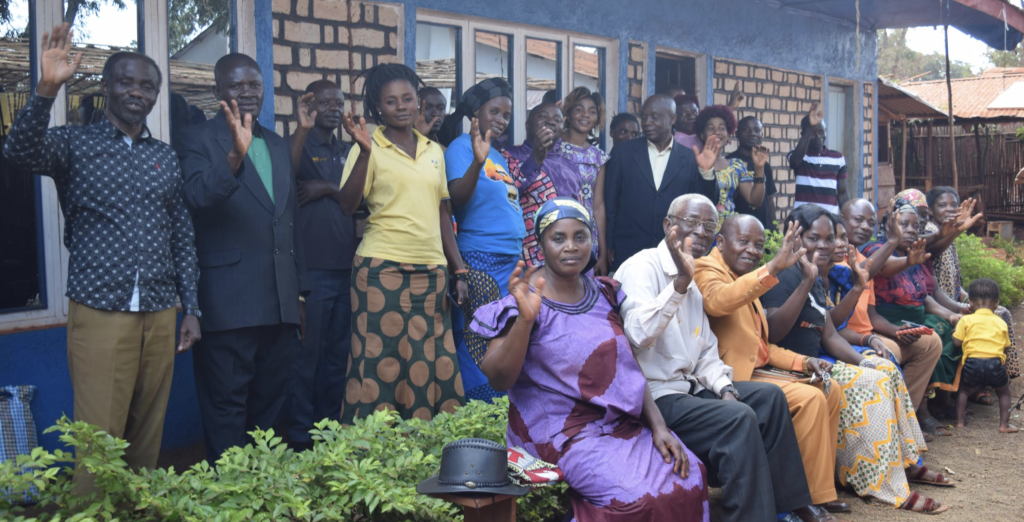The Dorcas Dress Project Launches in Leicester
A century ago, Leicester was an international hub for textiles and “clothed the world” but more recently the city has been plagued by accusations of terrible working conditions and modern-day slavery at the hands of fast fashion.
I felt that the Dorcas Dress Project might be able to get involved in Leicester, coming alongside garment workers to provide English lessons and share God’s love with those too often neglected in the fashion supply chain. We want to become a self-sustaining charity that uses the sales of its dresses to lift people out of poverty around the world. To make this a reality we needed to think beyond our current bespoke small scale production, so we started to explore a large batch production in a factory in Leicester. The project has organically grown as we listened to local needs and aspirations to prove there was a core of factories that valued everyone in their workforce. Our aim is to model gentle, kind business practices in an aggressive industry, where we can bring joy to others through our charitable actions, discipleship and prayer: much like Dorcas did in the early church.
After much thinking, prayer and conversation, I launched a crowdfunding campaign and began to put the word out.
Do you have the vision to be like Dorcas in your local area? If you’d like to explore setting up your own hub please contact maria@dorcasdressproject.org
A nail-biting time
Despite the crowdfunding being up and running, I felt incredibly vulnerable. By the start of February, we had barely reached £4000 of the £6000 target but even so, others were encouraging me to move forwards and meet with church leaders in Leicester, the Head of Styling at DMU, a factory owner and the visual team at John Lewis, Leicester.
Deep down, I battled with fear, imagining what it might be like to have to go back and tell all these people we hadn’t raised the money. Astonishingly, as time passed, the funds came in – and how! By the 14th of February, the target had been nearly doubled. I was blown away.
The power of prayer is incredible. If you’d like to be linked into our prayer group please email maria@dorcasdressproject.org, introducing yourself and pass on your mobile number so that I can add you to the WhatsApp group.
A team comes together
With the crowdfunding complete, the project became a whirlwind of hitting social media. I’m so thankful for all the people who were willing to model and try on the only dress sample we had from the factory. They certainly came up with a lot of different looks!
As the news went out that we were pushing forwards, a group of wonderful people from churches across Leicester came together on Zoom. Together we talked about how, and who could support an English teacher with lessons for the garment workers or organise and help run social activities for them to practise their newfound language skills. This is all in the works and I’m looking forwards to bringing you more on that soon.
We’ve also had a couple of meetings with people who might become new trustees. We’re eager to grow that too so from every angle, a team is coming together.
John Lewis, Leicester, gets behind the project
One of the most exciting parts of this project in Leicester is to have the support of a major retailer. Gavin, Emma, Tina and Rachel make up the Community Liaison and Visual Merchandising Team at John Lewis in the city centre and have given us a great spot near the lifts to show off our dresses.
The team have plans to paint the display area then let students from DMU, who are studying in this area, to come in and style the mannequins. We hope that will be a great experience for all involved.
Things are certainly moving quickly yet this is far from fast fashion. We still need to schedule in the manufacturing but are determined to show gentleness rather than pressure and aggression when we set this into motion with the factory owner, Abz.
And in other news…
We’re also starting work with a charity called Guideposts which runs workshops across Oxfordshire, Berkshire and Buckinghamshire. I met with leaders and volunteers last week and they are going to be making one of our jewellery pieces, designed by a student from Abingdon and Witney College. This promises to be a great opportunity for people in the local community to access support, friendship and creativity as we seek to create equal chances for everyone.
The Dorcas Dress Project also continues in Nigeria. Joy, who runs the project there, introduced me to a new dressmaker called Osho. Both live in Akure where our links are fragile and we’re praying for better communication by text and Zoom which is often challenged by poor internet connections.
We’ve sold half of our Nigeria stock and it would be great if we could sell what remains – do please check back to the shop to see what’s there!
Explore the shop here.
Help spread the word
I want to thank you so much for your interest in the Dorcas Dress Project and I’ll keep you posted as things progress in Leicester – watch this space!
If you know someone else who’d be interested in the project then do please forward this email on or get in touch any time at maria@dorcasdressproject.org.
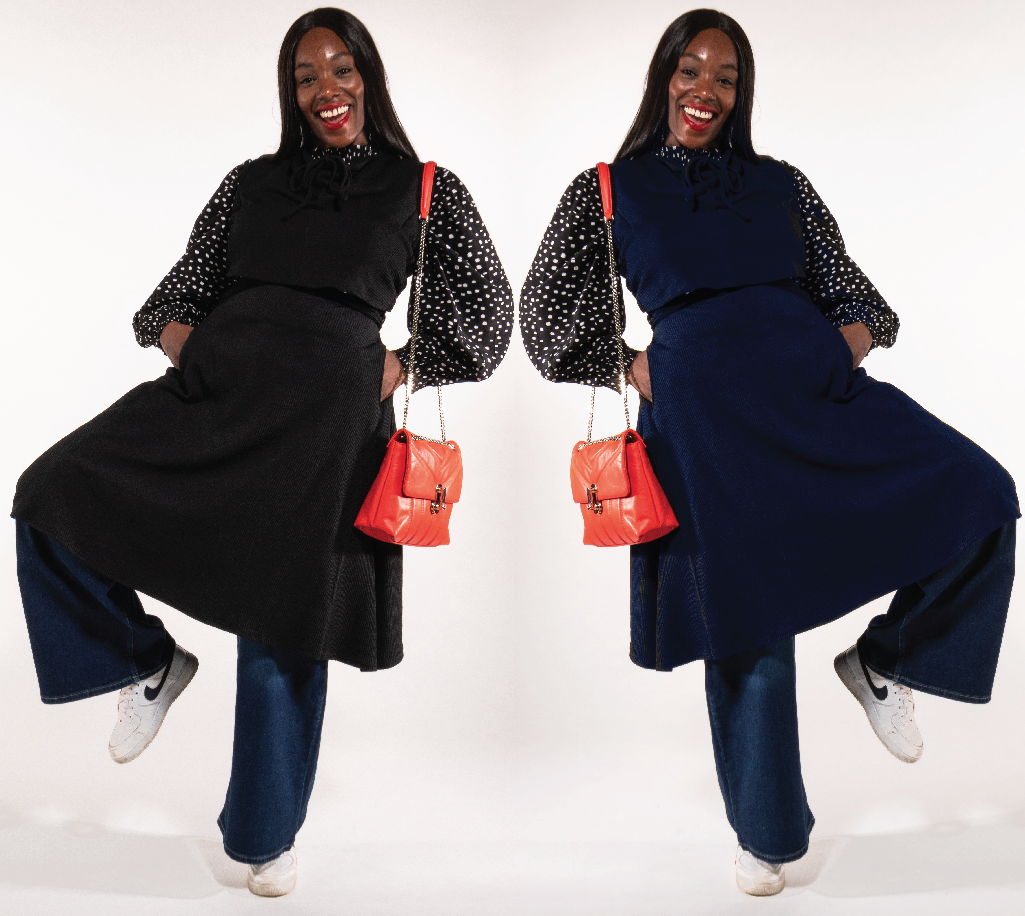
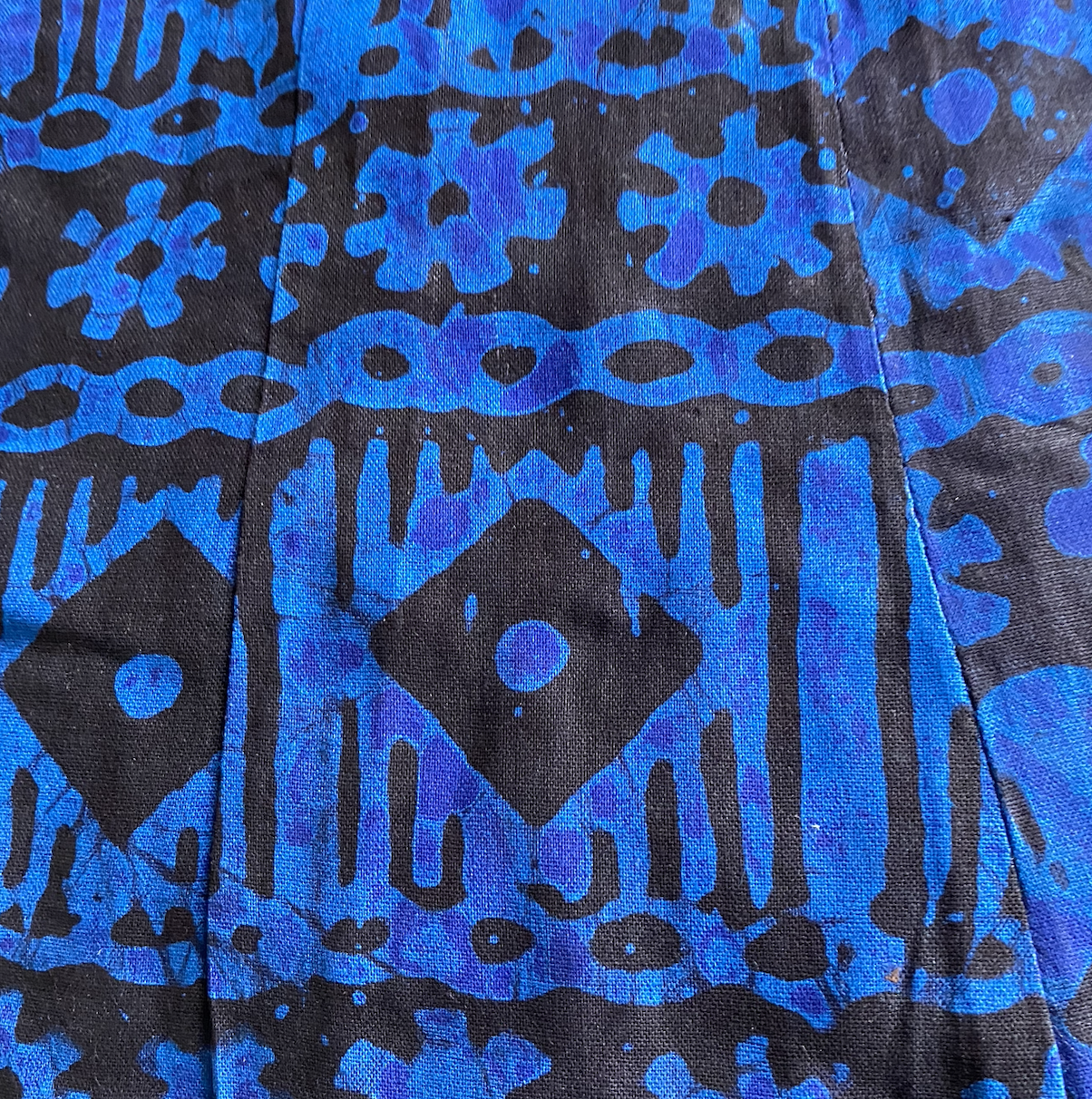










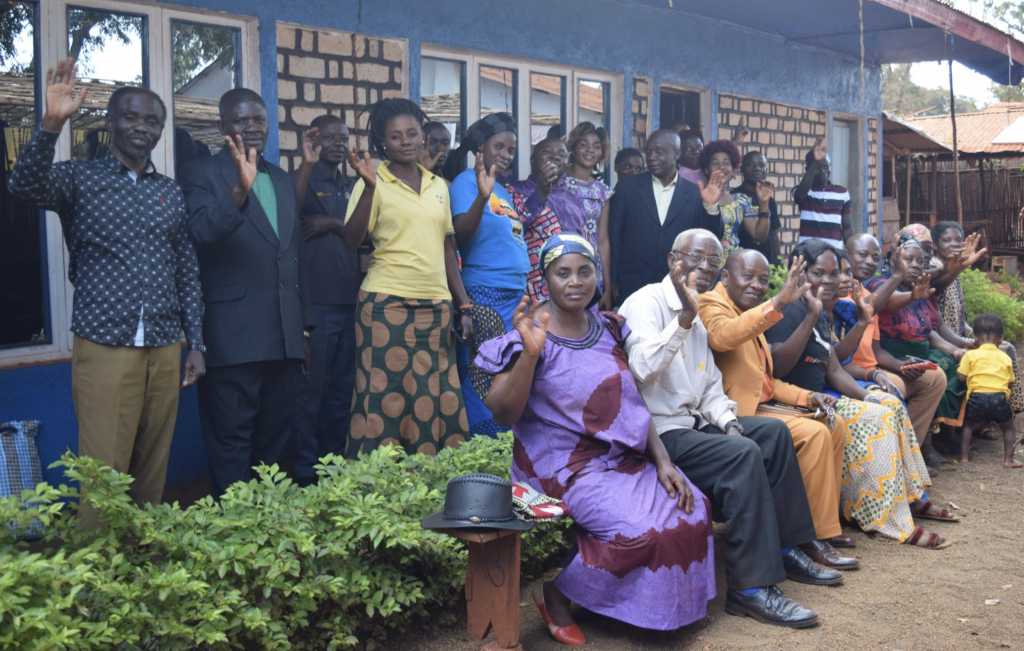
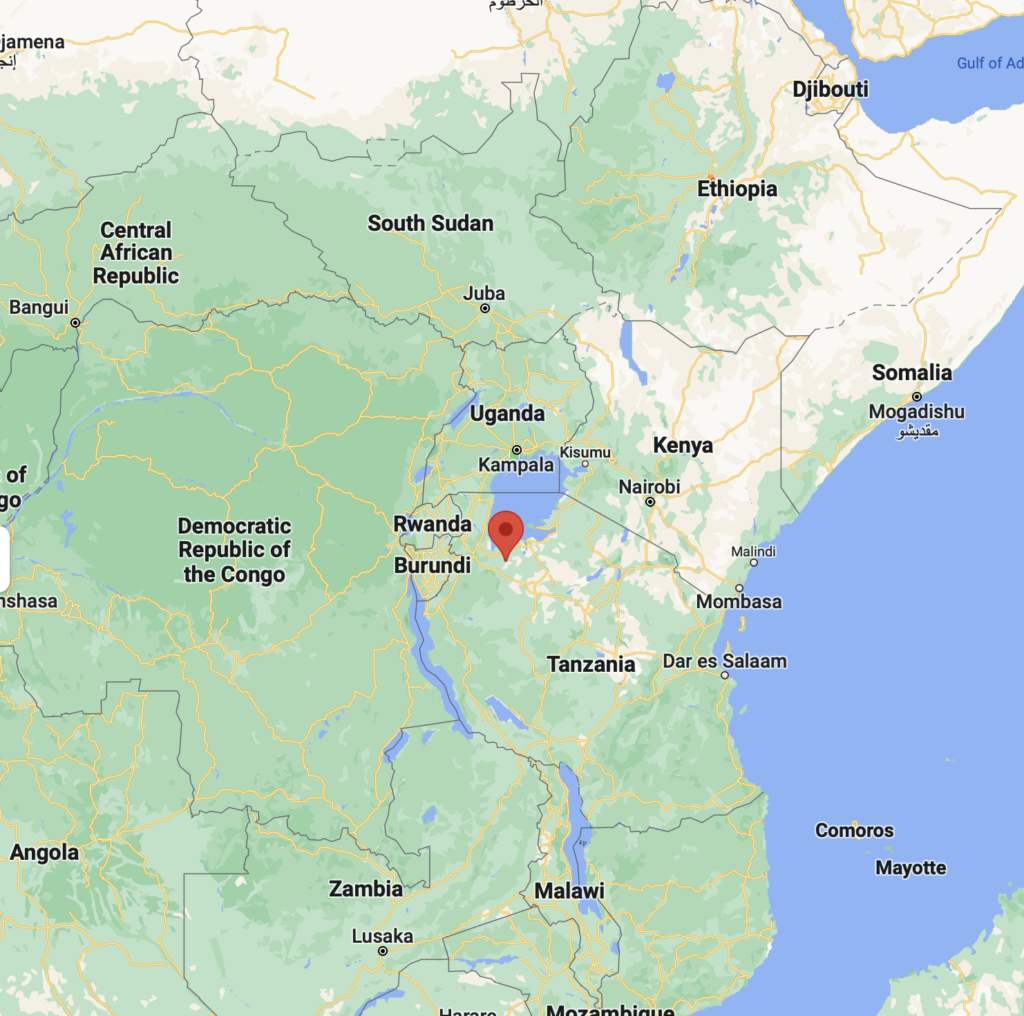
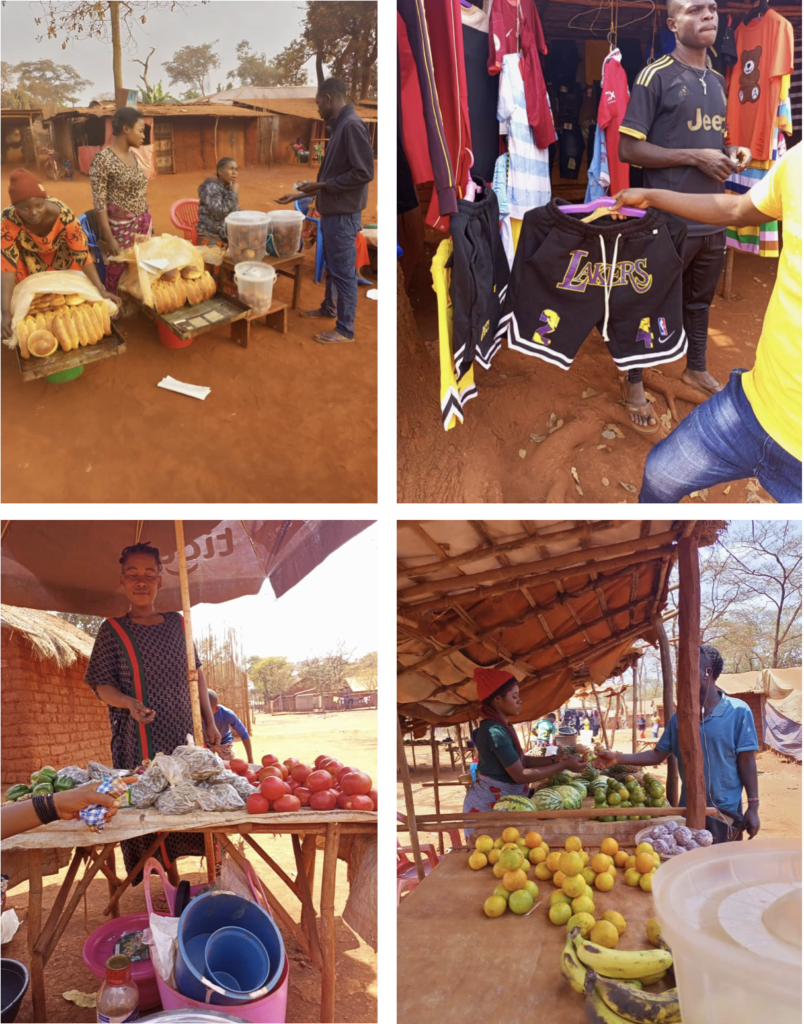
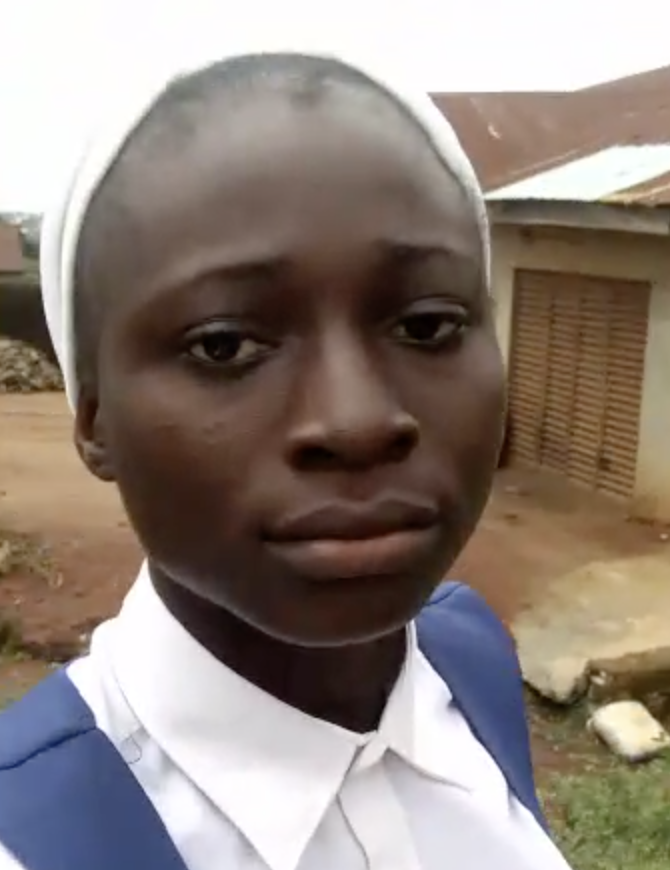
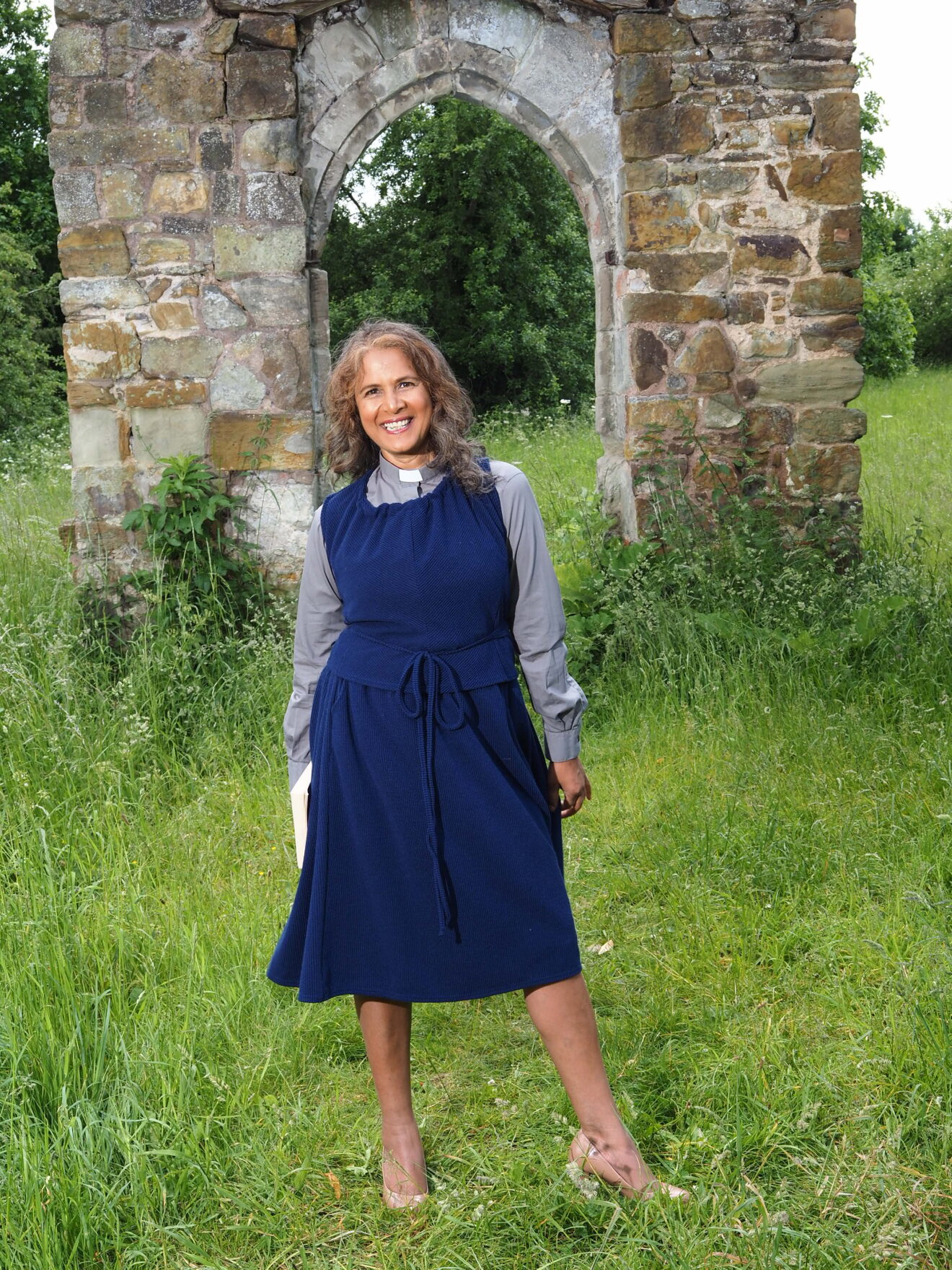 Thank you to the lovely Hasna for modelling our navy Dorcas Dresses so beautifully. We still have stock to sell so do consider sharing this newsletter and encouraging a few friends to buy frock 😉
Thank you to the lovely Hasna for modelling our navy Dorcas Dresses so beautifully. We still have stock to sell so do consider sharing this newsletter and encouraging a few friends to buy frock 😉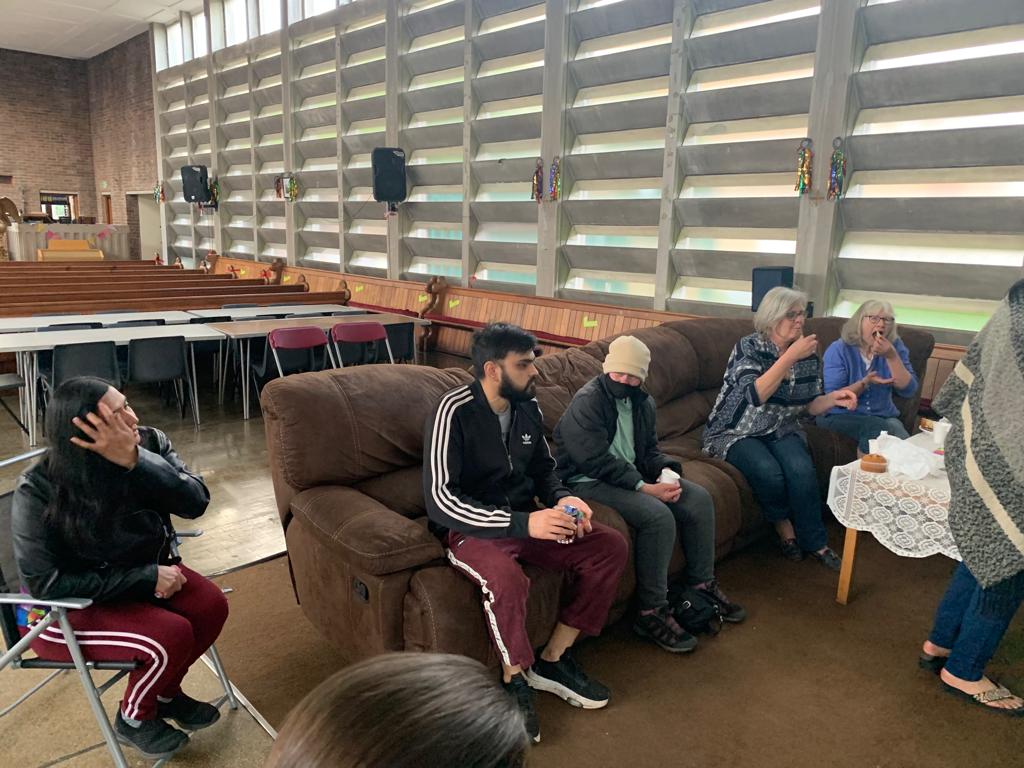 our Nigeria sewing hub have grown to seven ladies. They are currently producing a small batch of dresses which will be shipped to us shortly… watch this space for new stock in our shop.
our Nigeria sewing hub have grown to seven ladies. They are currently producing a small batch of dresses which will be shipped to us shortly… watch this space for new stock in our shop.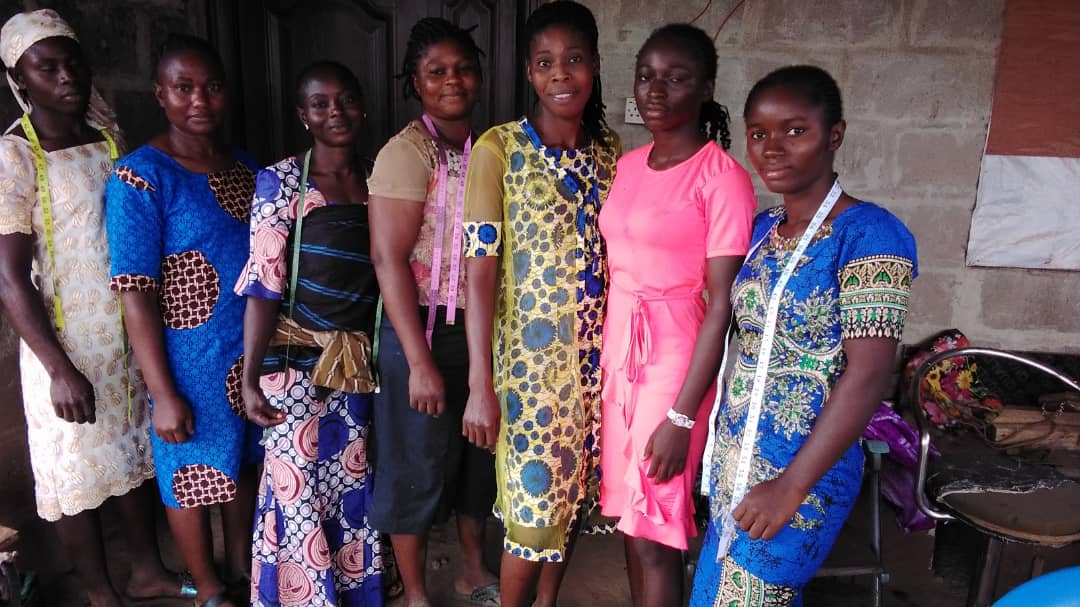 our Uganda hub will be receiving a shipment from us very soon. We recently sent a sewing machine, bundle of threads and hand tools which should arrive next month… more news of this next month.
our Uganda hub will be receiving a shipment from us very soon. We recently sent a sewing machine, bundle of threads and hand tools which should arrive next month… more news of this next month. we are exploring setting up a sewing hub in a Tanzanian refugee camp. The group have analysed local sources for materials and equipment and local outlets for sales. We will be sharing ways you can support this group in next months newsletter too.
we are exploring setting up a sewing hub in a Tanzanian refugee camp. The group have analysed local sources for materials and equipment and local outlets for sales. We will be sharing ways you can support this group in next months newsletter too.